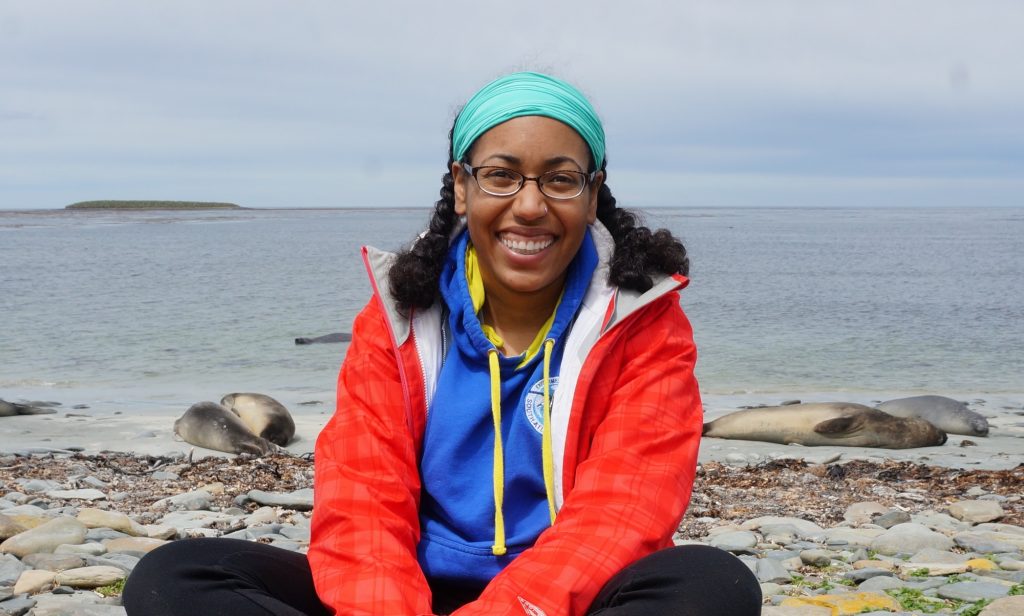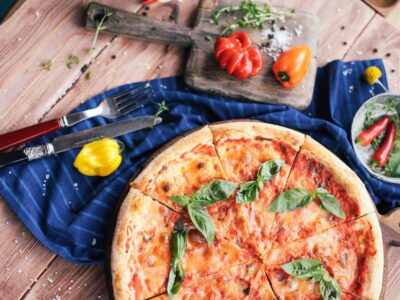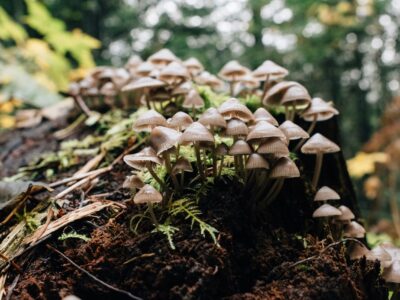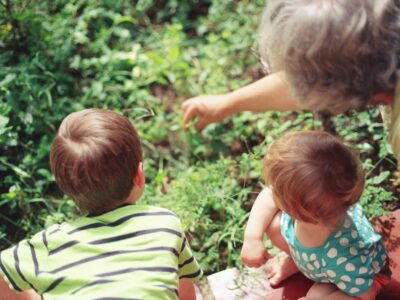Just as people migrate from one region of the world to another when their needs and habitats evolve, animals and even plants make similar moves, defining and redefining the spaces they call home.
Ecologist Veronica Frans has traveled all over the world researching biodiversity and the ways humans and nature interact with one another to see how we can better love our global neighbors in an interconnected world.
“I don’t just care for creation, I care for people. We are part of creation!” Frans said.
Growing up in New York City, Frans didn’t have easy access to nature, but what she saw on TV provoked a deep desire in her to be in wild places.
“I didn’t think about nature as ‘creation’ back then,” Frans shared. “Even though I had Christ in my life since the age of 12, I hadn’t yet linked creation to a Creator. Later in my high school years and going into college, that’s when I saw it as creation.”
Creation As Witnesses of God’s Glory
Seeing creation as connected to God the Creator enriched Frans’ experience as a scientist.
“Everybody says ‘all the heavens declare the glory of God.’ The apologetic angle is saying there is evidence of God through creation,” said Frans. But as an ecologist Frans sees all of creation as a witness of God’s glory and the ecologist as the observer of the declaration itself.
“Creation care is about taking care of that witness,” Frans said.
In his letter to the Romans, Paul insisted that evidence of God’s existence is baked into all of creation, so that “people are without excuse” (Romans 1:20 NIV).
But what happens if we dilute, damage, or destroy the very creation God made that declares his eternal power and divine nature?
“We’re taking away the reasons people are without excuse when we degradate green spaces or lose them entirely,” said Frans. “We’re taking away the witness of creation. Caring for creation is me taking care of God’s word and his testament.”
When Human and Natural Systems Collide
As just one of many creatures in God’s creation, Frans researches the way human systems and natural systems interact with each other.
“I study what causes species distributions and how species define their home,” said Frans. Species move for a variety of reasons—climate change, behavioral causes, and changes in seasons are a few of those reasons. “Sometimes we don’t factor in human causes like urbanization when we study species distributions.”
But Frans said things like road density, noise, light pollution, and more can affect species and their decisions about where they call home.
“I am inspired by the story of Genesis, because in the creation story when God made all of creation he called each day good,” said Frans. “Humans were last, the last element in the story, and he said it was ‘very good.’ When I see that ‘very good’ is God’s assessment of human’s presence in nature, then that’s what I’m trying to find in my research.”
Frans’ research took her to New Zealand to study a species of sea lions that is in recovery. The species, which is the rarest on the planet and exclusive to New Zealand, has been recolonizing on mainland New Zealand. For 150 years, this species of sea lion had been extirpated from this region, when, “All of a sudden a female sea lion is having a pup,” said Frans.
“They go up to 2 kilometers inland and keep them in the forest. They are the only sea lion species that does that behavior,” Frans said. But 150 years ago, there weren’t any roads on mainland New Zealand. “It’s different now. The human element is obvious, but also we have a recovering species in the midst of that.”
These surprises are amazing, but as scientists, how do we make models to prepare for surprises like these sea lions, Frans wondered. Her research aims to come up with models that are more proactive to changes in population behavior.
Discovering Biodiversity in Your Own Backyard
Even though Frans has lived elsewhere and traveled frequently throughout her life, she’s spent the last six years at Michigan State University in a PhD program. “God has been grounding me for the last six years—I’ve been coding!” said Frans. It’s been years since Frans has seen the sea lions she’s researching. But being grounded has helped her see the biodiversity in her own backyard.
Image Courtesey of Kellogg Biologocal Station – Michigan State University
“MSU has an organic farm,” said Frans. She signed up for the farm’s CSA. “I have learned so much about the variety of things I can eat. At the grocery store, you don’t pay attention to seasons as much. But with the CSA, every week or every other week for a couple of years I would get what fruits and veggies were growing that week. You don’t have to be out in nature to experience biodiversity. You can experience seasonality just from the people who are in your area. Visit farmers markets. Go to the farm; see what they’re growing.”
Frans recommends adding bird feeders and birdbaths around your yard, both for your sake and for the birds. “We’re losing a lot of green spaces and migrating birds in this season, so having safe stopovers for birds can be really helpful,” she said. Use an app like Merlin Bird ID to identify birds based on their songs or photos.
“You’ll be surprised how many species of birds there are. Some of them might be visitors right now. You can experience migratory patterns when you are listening to these birds, and at the same time you are also training yourself to hear what the app is hearing, getting to know the sounds. All creation is singing!” said Frans.
Telecoupling and Consumption
These days, Frans is especially focused on how our consumption choices affect biodiversity around the globe. Being “grounded” in Michigan while she completes her PhD has limited her ability to participate in more hands-on restoration projects like the ones she’s done in the past, but it has also opened her eyes to the ways that “our smallest decisions have telecoupled effects on biodiversity” around the globe.
Even something as minor as a cup of coffee has global consequences.
“The decisions we make impact other parts of the world and impact people in those areas, who also make decisions, which in turn affect biodiversity and the environment,” said Frans. Those environmental changes force both human and nature to adapt and make decisions that impact other parts of the world, “ultimately affecting you, others, or more biodiversity.”
Nature and biodiversity is resilient, but there is a limit to that resilience. “Everything that we enjoy about biodiversity can be lost,” said Frans. But Frans has hope.
In the story of the Good Samaritan, Jesus identifies a man who went out of his way to act out of compassion for his neighbor, even going so far as to love our enemies. According to Scripture, “We’re called to love everyone,” even the people we’re telecoupled to around the world.
Frans challenges us to think about these neighbors around the globe by considering how our choices impact other animals, plants, and humans. She emphasizes the importance of being mindful in all areas of our lives—our travel, our diets, our work, and more—because it is all interconnected, and it all matters.
“We need to practice agape love,” Frans said. “Agape love is an active love.”





 Copyright
2024
Root and Vine
Copyright
2024
Root and Vine